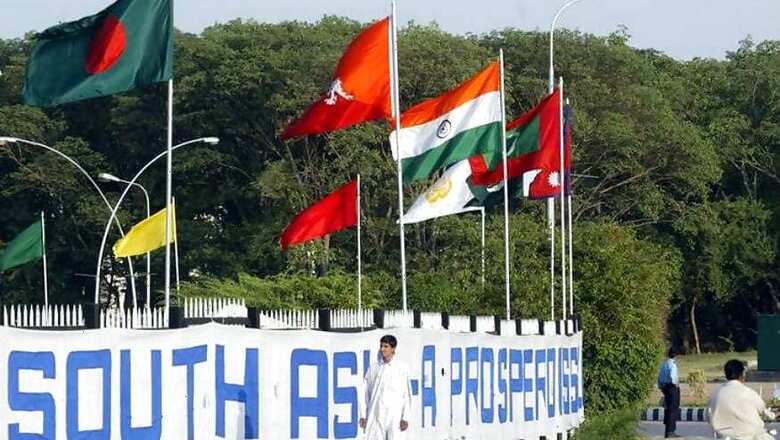
views
New Delhi: After India, Afghanistan, Bangladesh and Bhutan, too, have pulled out of the SAARC Summit in Islamabad, saying the "environment" is not right for the successful holding of the meet scheduled to be held in the Pakistani capital in November.
The decision was conveyed by Bangladesh and Bhutan on Tuesday to Nepal, which holds the SAARC Chair, sources said.
"The growing interference in the internal affairs of Bangladesh by one country has created an environment which is not conducive to the successful hosting of the 19th SAARC Summit in Islamabad in November 2016," the communication by Bangladesh said.
"Bangladesh, as the initiator of the SAARC process, remains steadfast in its commitment to regional cooperation, connectivity and contacts but believes that these can only go forward in a more congenial atmosphere. In view of the above, Bangladesh is unable to participate in the proposed Summit in Islamabad," it said, without naming Pakistan.
Bhutan said that while it is committed to the SAARC process and strengthening of regional cooperation, it is concerned over the "recent escalation of terrorism in the region, which has seriously compromised the environment for the successful holding of the 19th SAARC Summit in Islamabad in November 2016."
"Further, the Royal Government of Bhutan shares the concerns of some of the member countries of SAARC on the deterioration of regional peace and security due to terrorism and joins them in conveying our inability to participate in the SAARC Summit, under the current circumstances."
Afghanistan has also conveyed to Nepal that President Mohammad Ashraf Ghani would not be able to attend the Summit. "Due to increased level of violence and fighting as a result of imposed terrorism on Afghanistan", President Ghani "with his responsibilities as the Commander in Chief will be fully engaged, and will not be able to attend the Summit", a communication by the country said.
This is the first time that four out of eight member nations have decided to give the summit a miss, a move that that could lead to its collapse since it works on the rule of consensus.
While the Pakistan embassy said the host country was in the process of finalising its response, sources in the Nepal government said it was yet to decide on moving the meet out of Pakistan. “We have received communication from four countries, but we will have an internal discussion on this and the views of the host country will also have to be taken,” a source said.
Prime Minister Narendra Modi’s decision to not attend the summit was announced on Tuesday, hours after New Delhi issued a second demarche to Pakistan High Commissioner Abdul Basit over the September 18 Uri attack and confronted him with proof of "cross-border origins" of the terror strike in which 18 jawans were killed.
The attack has triggered a strong response from India which has reviewed the 56-year-old Indus Waters Treaty, and decided to reconsider the most-favoured nation status granted by it, unilaterally, to Pakistan.


















Comments
0 comment